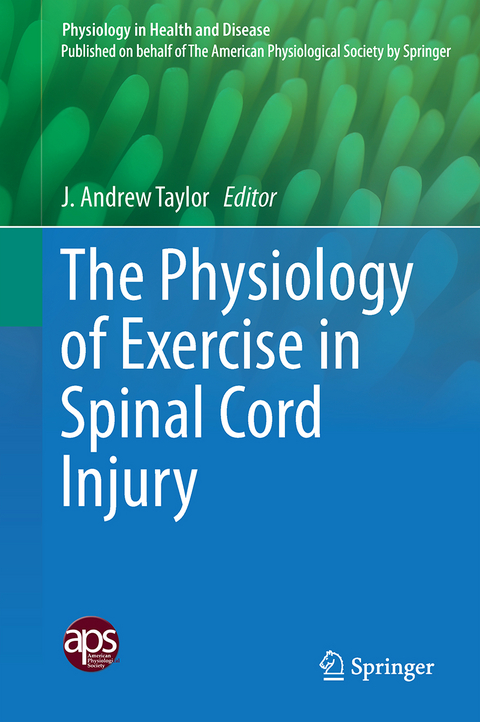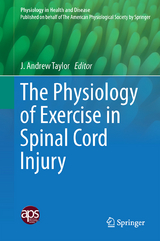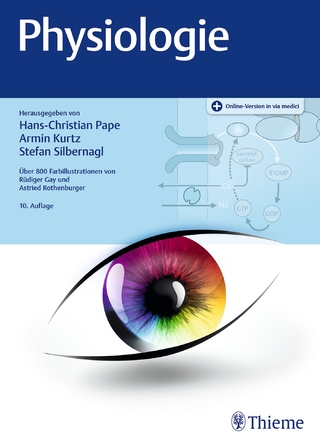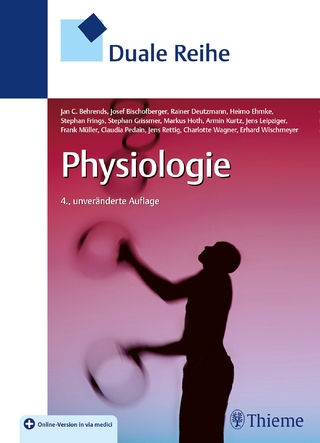The Physiology of Exercise in Spinal Cord Injury
Springer-Verlag New York Inc.
978-1-4939-6662-2 (ISBN)
Every year, around the world, between 250,000 and 500,000 people suffer a spinal cord injury (SCI). Those with an SCI are two to five times more likely to die prematurely than people without a spinal cord injury, with worse survival rates in low- and middle-income countries. Dynamic aerobic requires integrated physiologic responses across the musculoskeletal, cardiovascular, autonomic, pulmonary, thermoregulatory, and immunologic systems. Moreover, regular aerobic exercise beneficially impacts these same systems, reducing the risk for a range of diseases and maladies. This book will present comprehensive information on the unique physiologic effects of SCI and the potential role of exercise in treating and mitigating these effects. In addition, it will incorporate work from scientists across a number of disciplines and have contributors at multiple levels of investigation and across physiologic systems. Furthermore, SCI can be considered an accelerated form of aging due to the severely restricted physical inactivity imposed, usually at an early age. Therefore, the information presented may have a broader importance to the physiology of aging as it relates to inactivity. Lastly, the need for certain levels of regular aerobic exercise to engender adaptations beneficial to health is not altered by the burden of an SCI. Indeed, the amounts of exercise necessary may be even greater than the able-bodied due to ‘passive’ ambulation. This book will also address the potential health benefits for those with an SCI that can be realized if a sufficient exercise stimulus is provided.
Dr. Taylor is an integrative physiologist with a research focus on the human cardiovascular system and the effects of aging, exercise, and pathophysiology. He has conducted clinical/translational research on cardiovascular autonomic control at Harvard Medical School for over twenty years. His work has ranged across various pathophysiologic conditions, including chronic fatigue syndrome, disorders of sleep, and traumatic brain injury. A current primary area of research is exercise for those with spinal cord injuries to prevent inactivity-related cardiovascular deficits.
The Physiology of Exercise in Spinal Cord Injury (SCI): An Overview of the Limitations and Adaptations.- Physiology of Motor Deficits and the Potential of Motor Recovery after a Spinal Cord Injury.- Role of Activity in Defining Metabolic and Contractile Adaptations after SCI.- Respiratory System Responses to Exercise in Spinal Cord Injury.- Alterations in Cardiac Electrophysiology after Spinal Cord Injury and Implications for Exercise.- Cardiovascular Responses to Exercise in Spinal Cord Injury .- Thermoregulatory Considerations for the Performance of Exercise in SCI.- Increased Bone Fracture after SCI: Can Exercise Reduce Risk? .- Alterations in Body Composition after SCI and the Mitigating Role of Exercise.- Cardiometabolic Syndrome in SCI: The Role of Physical Deconditioning and Evidence-based Countermeasures.- The Effect of Acute and Chronic Exercise on Inflammatory Markers in SCI.- Role of Exercise in Alleviating Chronic Pain in SCI.- Autonomic Alterations after SCI: Implicationsfor Exercise Performance.- Hybrid FES Exercise for Improved Fitness in SCI.
| Erscheinungsdatum | 24.01.2017 |
|---|---|
| Reihe/Serie | Physiology in Health and Disease |
| Zusatzinfo | 12 Illustrations, color; 30 Illustrations, black and white; VI, 286 p. 42 illus., 12 illus. in color. |
| Verlagsort | New York |
| Sprache | englisch |
| Maße | 155 x 235 mm |
| Themenwelt | Medizin / Pharmazie ► Medizinische Fachgebiete ► Sportmedizin |
| Medizin / Pharmazie ► Physiotherapie / Ergotherapie ► Rehabilitation | |
| Studium ► 1. Studienabschnitt (Vorklinik) ► Physiologie | |
| Studium ► Querschnittsbereiche ► Prävention / Gesundheitsförderung | |
| Naturwissenschaften ► Biologie | |
| ISBN-10 | 1-4939-6662-6 / 1493966626 |
| ISBN-13 | 978-1-4939-6662-2 / 9781493966622 |
| Zustand | Neuware |
| Haben Sie eine Frage zum Produkt? |
aus dem Bereich




